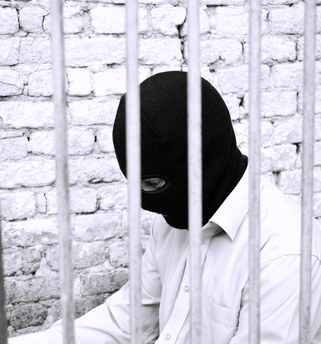Astonishingly, the Court of Protection is considering formally giving social workers the power to declare someone lacking Mental Capacity without pesky doctors getting involved.
It has been a bad few weeks for the Court of Protection. Back in February this blog revealed the sinister jailing of Wanda Maddocks for taking her disabled father to see a lawyer and being rude to social workers. Because of course the most serious threat to the vulnerable today is family members trying to assert their Article 6 Rights and improve their care.
If she had instead groomed him or raped him for years as happened to vulnerable children in Oxford then presumably social services would have turned a blind eye.
The utter head-in-sand-unreasonable refusal of the system to recognise its failings has gone on for years. This blog is largely concerned with the rights of the vulnerable and of course the iniquities of Labour’s outrageous legislation so I was delighted to see recently that Chris Grayling had asked for a review of the powers of the Court of Protection.
Unfortunately Her Majesty’s Courts and Tribunal Service have not quite got the idea. They are indeed reviewing processes and procedures. This article is about the recent review of the COP3 Form. What is a COP3 form, the astute reader may ask? Why would we care?
Well, a COP3 Form is the form used by the Court of Protection as evidence in proceedings about vulnerable persons to declare them incapable, whether of managing their own affairs or finances or deciding whether to go into a care home. Typically this form should be filled in by a doctor. Of course there are problems and concerns with the quality of expert doctors in the Court of Protection, but at least a professional other than a social worker is engaged.
In reality, the Mental Capacity Act 2005 has never been so straightforward. It requires the decision maker on the ground to be responsible for a decision about capacity. This has led to the questionable practice of social workers making decisions about capacity all on their lonesome. So of course the HMCTS have decided to review this questionable practice and … formalise it.
Community Care reports that the evidence of social workers is to be given greater weight in the Court of Protection. So now, when people are dragged off to care homes in secret or have control of their finances taken from them they will not even need to bother with even the dubious protection of an medical opinion. It is difficult to overstate the utter lack of propriety here.
The British public is not unreasonable. We understand that there must be a process for protecting and supporting those who cannot do so for themselves. There must be a process for identifying mentally incapable people and / or abused children and making decisions about their welfare. We understand as a nation that these cases are difficult and are willing to apply a generous margin of appreciation to professionals.
The Witchfinder is a law student. He has advised and represented people in both the Court of Protection and the Family Division. There are several very good judges and about 75% of the time Social Services are right in whatever it is they are trying to do.
The problem, the reason that the Court of Protection and the Family Division find themselves outside the generous ambit of the public’s patience, the reason they find themselves in the newspapers time and again is that in that 25% or so of cases where perhaps Social Services are not where they need to be the Courts repeatedly veer widely outside what the man in the street consider reasonable or even sane.
In the Court of Protection as in the Family Division the concerns arise from the secrecy, the financial incentives to bias ‘joint’ expert witnesses in favour of the state and the fact that a small minority of judges behave in a truly unacceptable way, such as for example HHJ Cardinal. The cumulative effect of this has been to bias the system such that in those cases where social workers have got it wrong the system regularly fails to effectively hold them to account.
Lord Judge recently said that no one should be jailed in secret and tightened up the rules on contempt of court. However those rules only apply to contempt, not welfare placement. In a small minority of cases that will make a difference. However the grim reality today is that the majority of secret imprisonments are placements in care homes – utterly unaffected by the law on contempt.
The recent changes to the COP3 will only strengthen the ability of councils to place allegedly incapable people in care on only the word of a social worker, in secret, forever.


